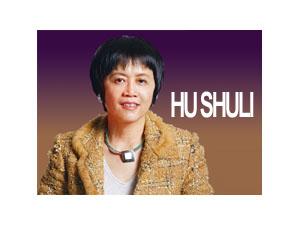Last month, Caixin magazine and its editor-in-chief Hu Shuli announced that they would file a lawsuit against business tycoon Guo Wengui for spreading damaging misinformation about the company and Hu. Guo had accused Hu of personal and professional impropriety after Caixin published details of his alleged involvement with the political downfall of former Beijing vice mayor Liu Zihua and his ties to former Deputy Minister of State Security Ma Jian, who is under investigation for corruption. This week, Caixin announced that it has now filed lawsuits against Guo in Beijing and Hong Kong. From Nectar Gan at the South China Morning Post:
In a statement posted on Caixin’s website today, the company claimed that the behaviour of Zenith, Pangu Investment and Guo “not only infringed Caixin and Hu’s legal rights, but also were suspected of damaging [Caixin’s] commercial reputation and libel”.
It said it had employed lawyers in Beijing, Hong Kong and the United States to bring legal proceedings against the three parties.
It has filed a lawsuit against them in Beijing, demanding that they be held civilly and criminally responsible.
Another lawsuit has been filed to the Hong Kong High Court, in which Caixin demanded that they pay compensation to Caixin and Hu for the alleged damage and spread of slander. [Source]
Read the Caixin statement in full.
In a post written before the release of Caixin’s latest statement, David Bandurski of China Media Project points out that in the original announcement of the lawsuit, Caixin brought up the issue of press freedom, which could have complicated their legal position:
[..T]he Guo-Caixin showdown has also brought the issue of watchdog journalism — or what is known in China as “supervision by public opinion” — and press freedom into the spotlight. In its statement, the Caixin Media legal team alleged that Guo’s remarks about Hu Shuli were not only potentially libellous, but also “have severely damaged the climate for journalists as watchdogs and trampled on the fundamental principles of press freedom.”
This is a fascinating argument to hear from a mainland-based media group bringing a lawsuit in Hong Kong. What do Caixin’s lawyers mean by referring to these “fundamental principles of press freedom”? Fundamental where?
In China the notion of “press freedom” is itself a sensitive topic, used most often in a pejorative sense by Communist Party media to denote something alien and hostile (“so-called press freedom”). Freedom of expression may be enshrined — so far, impotently — in China’s Constitution, but the Party’s dominance of the news media is a point that admits no questioning.
[…] As Caixin pursues its lawsuits in Hong Kong, this aspect will be an important dimension of the story to watch. Will this language about “fundamental principles” crop up again, and how? [Source]
In Caixin’s latest statement about the lawsuit, dated April 15, there is no mention of press freedom or the case’s impact on watchdog journalism.
Read more about the dispute between Guo Wengui and Hu Shuli, via CDT.







